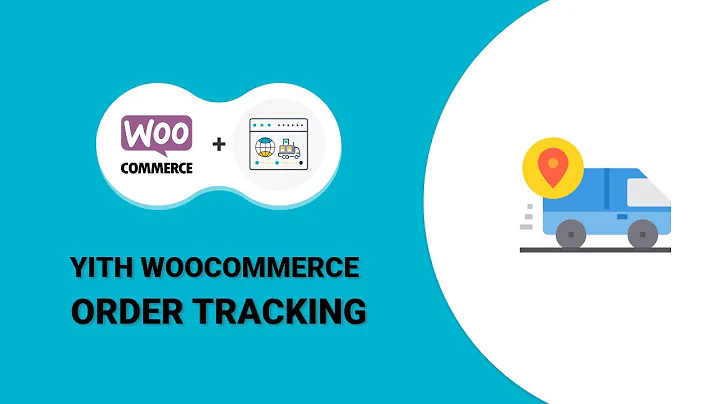Choose the Right eCommerce Platform for Your Online Store
Table of Contents
- Introduction
- The Top eCommerce Platforms
- Shopify
- Shift for Shop
- WooCommerce
- Bigcommerce
- Factors to Consider When Choosing an eCommerce Platform
- Budget
- Level of Tech Savviness
- Product Type
- Pros and Cons of Shopify
- Pros
- Cons
- Pros and Cons of Shift for Shop
- Pros
- Cons
- Pros and Cons of WooCommerce
- Pros
- Cons
- Pros and Cons of Bigcommerce
- Pros
- Cons
- How to Choose the Right eCommerce Platform for You
- Conclusion
The Top eCommerce Platforms to Start Your Own Online Store
Starting your own online store can be an exciting and profitable venture. However, choosing the right eCommerce platform to build your store on can be a daunting task. With so many options available, it's important to consider factors such as your budget, level of tech savviness, and the type of products you sell.
In this article, we will explore the top four eCommerce platforms that you can use to start your online store. We'll discuss the pros and cons of each platform, as well as provide recommendations based on your specific needs.
Shopify
Pros:
- Shopify is one of the most popular and widely recommended eCommerce platforms.
- It offers a user-friendly interface, making it easy for beginners to set up and manage their online stores.
- Shopify has a wide range of themes and templates, allowing you to customize the look and feel of your store.
- It has an extensive app store, providing you with access to a variety of third-party integrations and functionalities.
- Shopify offers reliable customer support and has a large community of users for assistance.
Cons:
- Shopify can be expensive, especially when you start adding paid apps to enhance your store's functionality.
- The blogging platform provided by Shopify is not as robust as other platforms, limiting your content marketing capabilities.
- Shopify charges transaction fees if you don't use their built-in payment system.
- The SEO URL structure of Shopify is sub-optimal and may negatively affect your store's search engine rankings.
Shift for Shop
Pros:
- Shift for Shop offers a powerful eCommerce platform with a full feature set.
- It provides free email marketing built-in, saving you costs on additional marketing tools.
- The integration with WordPress allows you to have a blog and a store on the same domain, improving SEO opportunities.
- Shift for Shop does not charge any transaction fees, making it a cost-effective option.
Cons:
- The user interface of Shift for Shop can be complex and has a steeper learning curve compared to other platforms.
- The platform has a smaller developer community, resulting in a delay in the availability of cutting-edge features.
- Limited third-party integrations and apps may restrict customization options.
WooCommerce
Pros:
- WooCommerce is the most popular eCommerce platform globally.
- It is a cost-effective option as the base software is free to use.
- WooCommerce has excellent SEO capabilities, especially when combined with the power of WordPress.
- The platform offers full control and autonomy over your website, allowing for customization and flexibility.
- With a large developer community, it is relatively easy to find support and assistance.
Cons:
- Maintaining WooCommerce requires technical knowledge and responsibility, including server management and security.
- The platform can be more challenging to set up and use compared to other options.
- Limited customer support is provided directly by the platform, requiring external assistance for complex issues.
Bigcommerce
Pros:
- Bigcommerce offers a hybrid approach, combining ease of use with advanced features.
- The platform provides a full feature set out of the box, reducing the need for third-party integrations.
- There are no transaction fees, making it a more cost-effective option.
- Bigcommerce has excellent SEO capabilities, including integration with WordPress for blogging.
Cons:
- The pricing is based on revenue, which can be less favorable for low-margin businesses.
- The third-party developer support is not as extensive as Shopify but better than some other platforms.
- Customization options may be limited compared to other eCommerce platforms.
When choosing the right eCommerce platform for your online store, consider your budget, level of tech savviness, product type, and specific needs. Take into account the pros and cons of each platform and select the one that aligns with your requirements.
In conclusion, Shopify is a safe and widely recommended choice for most people. Shift for Shop offers a powerful and cost-effective alternative. WooCommerce provides flexibility and customization options. Bigcommerce combines ease of use with advanced features. With careful consideration, you can find the perfect eCommerce platform to start your own successful online store.
Highlights
- Shopify is a popular and user-friendly eCommerce platform, but it can be expensive.
- Shift for Shop offers a powerful solution with free email marketing capabilities.
- WooCommerce is the most popular eCommerce platform globally and offers excellent SEO.
- Bigcommerce combines ease of use with advanced features and no transaction fees.
- Consider your budget, tech savviness, and product type when choosing a platform.
FAQs
Q: Which eCommerce platform is the most affordable?\
A: WooCommerce is the most cost-effective option as it offers free base software and has low additional costs.
Q: Can I start my online store for free?\
A: Some eCommerce platforms, such as WooCommerce, offer free base software, but additional costs may apply for hosting and customizations.
Q: Do I need technical knowledge to use an eCommerce platform?\
A: The level of technical knowledge required varies between platforms. Shopify and Bigcommerce are user-friendly, while WooCommerce may require more technical proficiency.
Q: Which eCommerce platform is the best for SEO?\
A: WooCommerce, with its integration with WordPress, offers excellent SEO capabilities. Shopify and Bigcommerce also have SEO features but are more limited.
Q: Are there transaction fees on all eCommerce platforms?\
A: Shopify charges transaction fees unless you use their built-in payment system. Shift for Shop and Bigcommerce do not impose transaction fees.
Q: Can I customize my online store on all platforms?\
A: Each platform has different customization options. Shopify offers numerous themes and apps, while WooCommerce allows for complete autonomy over your website.
Q: Which eCommerce platform has the best customer support?\
A: Shopify is known for its reliable customer support. WooCommerce relies on its extensive developer community for assistance.
Q: Can I switch eCommerce platforms in the future?\
A: It is possible to migrate your online store to a different platform, but it may involve some challenges and technical knowledge.













